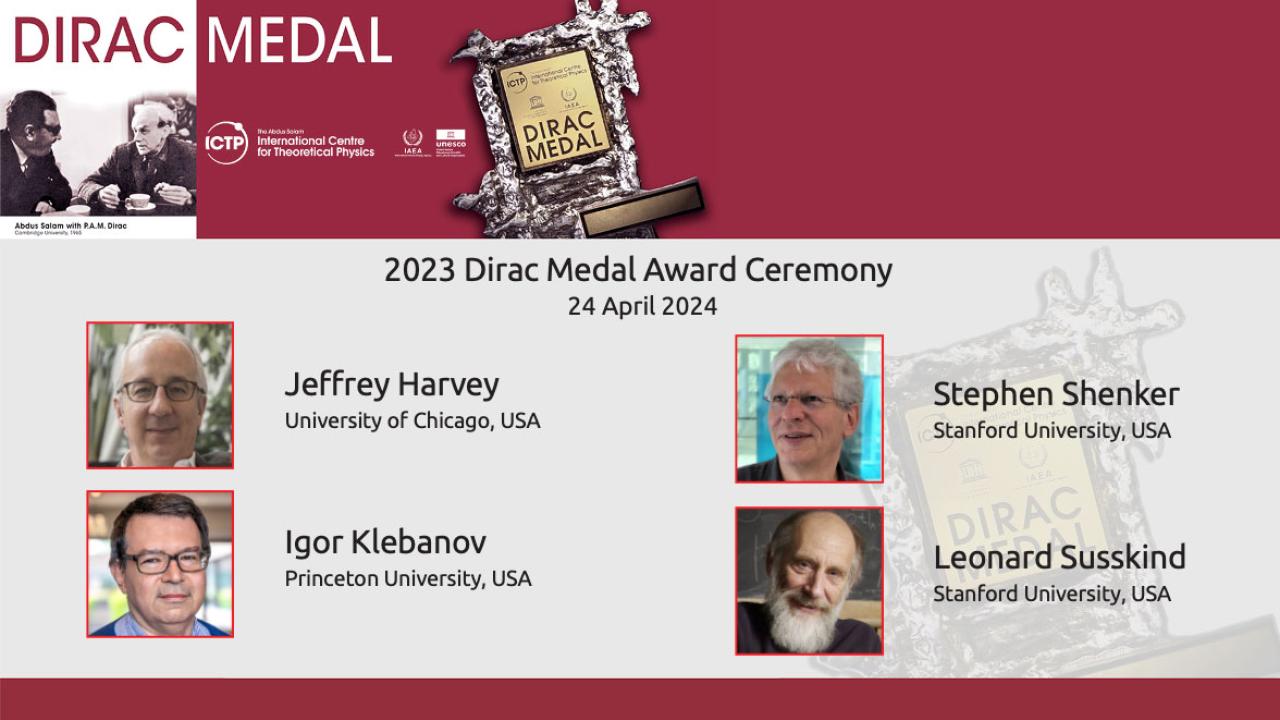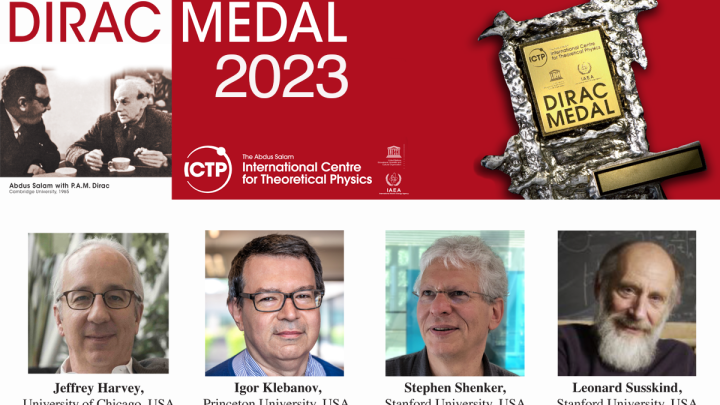
ICTP will honour four physicists who received the 2023 Dirac Medal for their wide-ranging contributions to string theory, at a ceremony to be held on Wednesday 24 April in the Centre's Budinich Lecture Hall.
The 2023 Dirac Medallists are:
- Jeffrey Harvey, University of Chicago, USA
- Igor Klebanov, Princeton University, USA
- Stephen Shenker, Stanford University, USA
- Leonard Susskind, Stanford University, USA
The award cites "their pioneering contributions to perturbative and non-perturbative string theory and quantum gravity, in particular, to the aspects related to anomalies, duality, black holes and holography".
"This year's medallists have made many original contributions to developing the theoretical framework of string theory, with the goal of unifying all physical interactions including gravity," said ICTP Director Atish Dabholkar. "Their work has led to deep, new insights about the physics of black holes and to major conceptual breakthroughs through the realisation of new principles of duality and holography."
A Unified Theory of Physics
Physicists consider string theory to be a unified theory of physics, one that unites Einstein’s general theory of relativity (which describes gravity) and quantum mechanics (which describes the fundamental elements of matter). It does this by re-imagining the fundamental building blocks of matter as tiny vibrating strings. Just like the different vibration patterns of a violin string produce different musical notes, the different vibrational states of strings produce different fundamental particles, such as electrons or neutrinos, by determining their properties, like mass or charge.
String theory is of great importance in addressing several questions in fundamental physics, and has been applied in various fields, such as the study of black holes, the early universe, and condensed matter. It has enabled major developments in pure mathematics, thanks to its complex and rigorous formulation.
About the ICTP Dirac Medal
ICTP's Dirac Medal was first awarded in 1985. Recipients comprise the world’s top physicists, many of whom have proceeded to win Nobel Prizes, Fields Medals or Wolf Prizes. An international committee of distinguished scientists selects the winners from a list of nominated candidates.

















